Radical Acceptance

Want to be really radical? Accept your situation. Allow your past. Allow your present.
Radical acceptance is brave and effective. Without fighting what has arrived, or what occurred years ago, we allow our regrets from the past, or our fears of the future. In deep empathy for our experience, we invite what has come into our worlds and we sit down next to it. We stay awhile. It is uncomfortable, even terrifying to do this. It’s a right thing that feels wrong. Yet, we comfort ourselves in this situation, and we offer soothing to our discomfort.
Even in the throes of fear. When we wrap our loving arms around our fears, soothing the parts of us that are afraid, we don’t add fear of Fear onto our suffering.
When we look straight into the eyes of what has arrived in our worlds, allowing our fears without resentment, we step into the grace of radical acceptance. What’s here is simply here, now. Not forever. Not made bigger by anxiety or the judgments we heap upon it; not made worse by our ruminations. We actually move more quickly into knowledge about what to “do” after we have radically accepted that this thing is here, now.
It has been an extremely challenging time for me, for months. On and off for years, actually. My young adult sons have had tremendous struggles with substance abuse, mental health challenges, trauma, grief, loss of friends, jail time, and legal issues for ten years. With deep empathy for them I’m often torn up inside, or busy with details trying to advocate alongside them for their mental health & recovery from substance abuse.
Yet, the last decade has taught me to finally radically accept their circumstances and mine, as they arise.
Their stuff is also my own because we are a family, and the issues they face stem from our ancestry, our personal and family’s traumas, & how we’ve moved through life together. Their pain is not theirs solely, it is mine to share, and they are not alone in their healing.

Feeling it in Our Bodies and Hearts
It’s radical for me to accept their situations and mine, to respect my sons and love them without conditions in their processes whether they are clean or using, whether they are mentally stable or psychotic. For years, I preferred minimizing things, placing my hope in their potential, not believing that they and all of us would be struggling for so long with substance abuse and our mental health. By radically accepting it more fully now, I find the resolution I was seeking inside of myself. The vicious cycle can stop with me, as I change myself and my behavior. I respect both of my sons who are actively changing themselves in their own radically positive ways right now. Our family is moving forward with more grace and true grit, in the active warmth of yang and the containment & receptivity of yin. I don’t simply accept these situations, however. I began this inner resolution process by getting more fully into my heart and body, breathing into my pain, fear and helplessness.
Bringing awareness and tenderness, I experience what my body and heart feel and are telling me, then I see where that takes me. I listen to the truth coming from my deepest Essence.
I’m aware of my thoughts, but I notice them then move into where I feel the pain. Getting out of the “stories” in my head and connecting with my feelings and body, I find deeper access into what’s happening and what needs to happen, and afterwards find more clarity about what to do.
I’ve learned this, again and again: Connecting the dots of mind, heart, body and Essence is a whole-being solution, and is part of what leads us to the answers we seek.
All families have challenges. The most daunting ones require using the same bravery skills which work in less difficult situations. Just as in any sport, in art or music, the skills we use to create or do or play something that is easier are the same skills we use later to produce and perform the most difficult pieces well, or become a fully competent athlete.
Through radically accepting whatever Is, for a time, not passively but actively, we are more flexible, adaptable, and compassionate. While it is a choice, it’s not a thinking state. It is a way of being. Of opening. Radical acceptance is empathy in action. It is part of the healing process, and is a not-doing that does.
Radical acceptance is a way of being, of experiencing what Is. It is not a way of thinking. It is empathy in action.
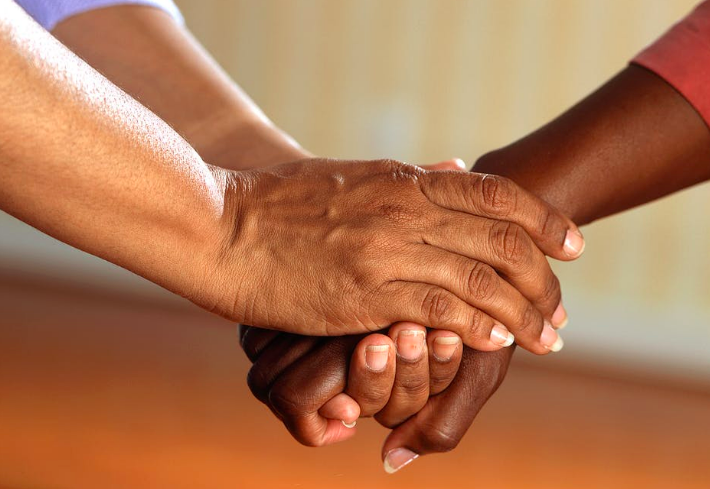
Just What Do We Radically Accept?
We radically accept whatever each day gives us. Maybe for you, it’s depression that doesn’t seem to be caused by anything. Perhaps you were an anxious child, or you’re compulsive now. Maybe you have an eating issue or disorder. You may be a workaholic. You may have been traumatized, have flashbacks and dissociate at times. Perhaps you have trust issues, or you’re overly caretaking and find that others don’t reciprocate. Maybe you have low self-worth, lack of motivation. Perhaps you have a beloved who is not demonstrative, and lacks the intimacy you long for. You may have mental illness, be extremely hyper or impulsive. Perhaps you have prolonged, unhealed grief. Maybe you have a dependency upon a substance or person. You may have ADHD, often losing things, being distractable and unfocused at times. You may have a parent who is not independent, or financially stable. Perhaps your lover relies upon you too much, isn’t generous, or embarrasses you at times. You may be an overachiever, an underachiever. You may feel inadequate, worthless, unlovable or may simply feel stuck, lost or lonely. We accept it all, as it is. We feel our emotions, without judging them, and tune into our bodies. Then, we go from there.
Deep Empathy and Compassion
We see and allow that what happened to us has occurred, how we act is what we tend to do, instead of denying it, minimizing it, or avoiding it. We own and accept that what is drastic, shocking or tragic is actually that big: it’s even devastating to us, and we’ve been knocked down, are wounded and broken, and even though we’re desperately trying, we can’t seem to get up. And, we do this with deep empathy and compassion for ourselves.
What is empathy? Empathy is understanding and sharing the feelings of another being. What is compassion? Compassion is sympathetic concern for the sufferings or misfortunes of others.
When we mindfully take the time and get into presence, feeling empathy and compassion for ourselves or for another, we see, we listen, and we experience. We observe that we are in the trenches, seeing it all from inside of our own hearts and bodies, or we walk in the shoes of another, imagining what they think about and the heavy burden of pain they carry.
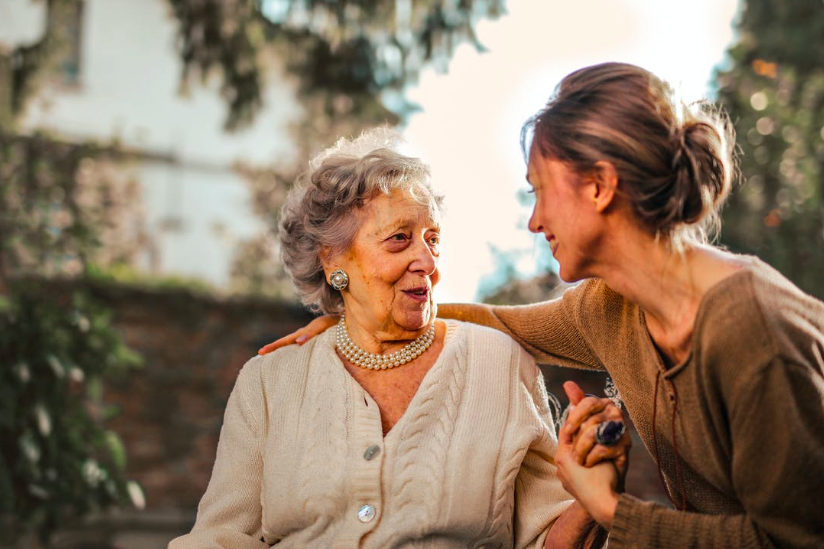
It is Risky Because it means We Have to Feel
Radical acceptance means watching ourselves or another person crawl and seeing that we’re helpless to fix them or the situation. There is nothing we can do to change our circumstances, to change someone else, or to make things better. Not at this moment. We’re powerless, and it’s tearing us apart. We allow our helplessness and feel that hopeless inability to do something. Letting go of the “myth of having control,” we risk further, drop our longing to fix, and extend the few things we can offer: compassion toward our experience, energy of highest good or prayer, and kindness to move into whatever will come next.
What is radical acceptance?
It is a path into transformation. It’s a way we halt our inner suffering. We pause, look our opponent in the eye, peel off and set down our boxing gloves then invite them to sit next to us in our favorite chair. By stopping the fight against our lives, we accept the situation we are already in. We say: these are my circumstances. We breathe in: “This is what Is,” and breathe out: “I accept it.” I say this repeatedly, at times. Radical acceptance does not mean we won’t try to make assertive change, or actively take steps towards making things better. Instead, it gives us the grace we need to do what’s called for. When we spend intentional, mindful time in radical acceptance, wrestling with our pain, the darkness becomes fruitful.
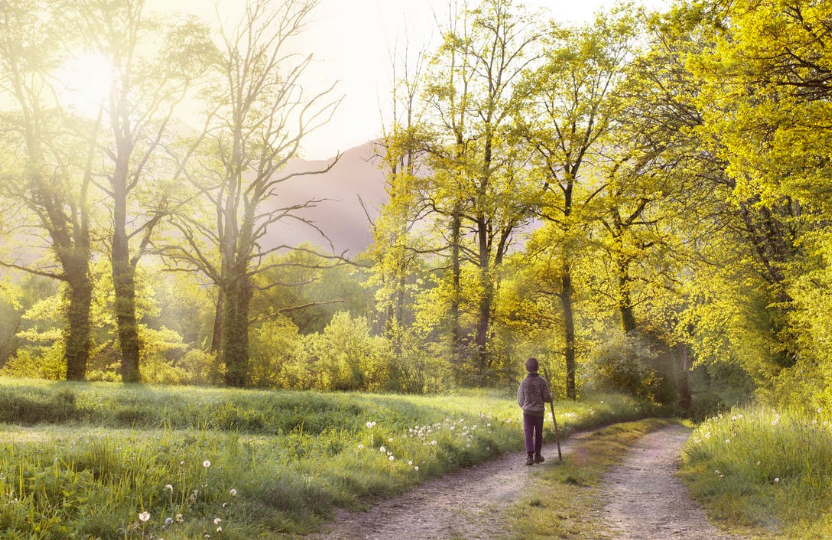
We simply start with where we are and quit trying to punch the air around us. It’s radical because the world often teaches us to stay in the past or fix our eyes upon the future prize. Radical acceptance is the ultimate step into Nowness. Radical acceptance is present moment living, and it’s the biggest white surrender flag you’ll ever wave.
We Allow Guilt & Regret, But Aren’t Stuck There
Radical acceptance of whatever Is means assertively surrendering to what Is, to this thing we had hoped would never happen.
For decades, my brain made the pain I was experiencing worse through guilt and regret. Whatever difficulties I was facing in circumstances, my thoughts had hard-wired a “negative bias” to take me down with guilt for all the mistakes I’d made, or things I wasn’t aware of and should have done.
For example, placing my youngest son in a therapeutic boarding school in another state after he’d been expelled from school and kicked off the tennis team here in our home city nine years ago. I hired an educational consultant, took the counsel of his therapist who concurred, and he was “sent to, not sent away,” to a therapeutic college prep school and residential treatment program for teenagers. I hated doing it at the time. It tore me apart – I wanted to be his ever-present mother, not relinquish him to the parenting and guidance of people I didn’t know.
Yet things had declined so completely that our whole family was dysfunctional, and not able to give him or each other what he or we needed.
His stepdad had died of brain cancer the year before, and my son was using drugs and alcohol daily to self-medicate. He was disrespecting all authority so completely he’d spiraled downwards into an abyss of out-of-control rebellion, with frequent and dangerous impulsivity. He was driving without a license on substances and had snuck our car out late one night and gotten into an accident. We took the advice of professionals, flew to Montana and he was placed in a therapeutic boarding school. He and I both cried separately the day I left him there, heartbroken and afraid.
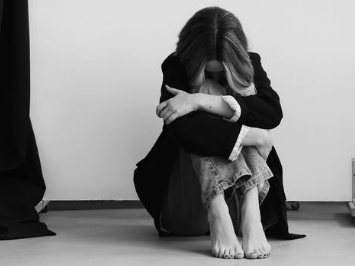
Yet, we began the process, trusting that things could change and we would all develop new skills and grow back together where we’d been broken. We all participated in family therapy and the intensive work required, and many positive things came from it for him and all of us. He was away from our home for around a year. He did the best in school he’d ever done. He had a roommate who was genuinely becoming his best version of himself and was a good role model. He had healthy influences, structure, and lots of athletic opportunities he wouldn’t have had at home. Daily sports were a part of treatment: they skied, hiked, played ping pong, tennis and basketball as part of the therapeutic focus upon being in their bodies to build confidence in themselves and to heal.
They had peer accountability, frequent individual and group therapy, and they had fun. We did family sessions over phone and video calls. We flew up to the school to be with him once a month on weekends. All of it may have saved his life. But I missed him terribly and had an underlying guilt and sadness that tore me apart, a sense of doubt that I didn’t do enough, that I didn’t do the rightest thing.
Deep inside of me, I never radically accepted the situation, not until years later.
I lived not with the painful ease of radical acceptance, but with teeth-clenching turmoil and guilt, doubting my judgment frequently, staying anxious and often down. Was this helpful to me, to him, or our family? Not in the least. I still showed him my truest love, but I know he intuited my doubt, and in turn he doubted me.
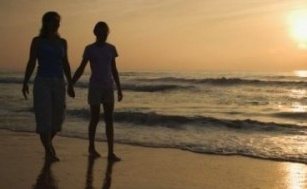
Radical Acceptance Means True Seeing
He would have benefited more from me walking alongside him with less anxiety and pain, with more authentic gladness and gratitude in my daily life. But how could I have gotten to that place? If I had allowed my guilt and inner turmoil instead of fighting it, I believe I would have moved through it, and had more clarity. If I had moved past the “potential” of what he could have been and accepted more fully who he was then, truly seeing him, and authentically seeing myself.
True seeing of ourselves and another means disattaching from their “potential,” or what we wish for. In clear-sightedness, we comfort and console ourselves, because the only thing we can control is us. I practice this now when guilt and regret arise for me. We allow all of our mixed feelings, such as moments of happiness amidst grief or trauma, and express them in healthy ways. We live in non-duality. We’re radically stepping into the unknown, the grey area, instead of black-and- white preferences, opinions and views.
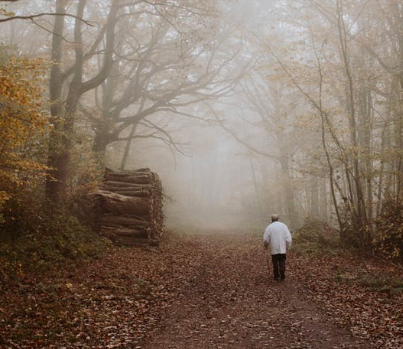
Whatever abuse, loss, misdeed, betrayal, any lack of being “seen” which has happened to us deserves our honest, loving eyes upon it, and the compassion of our own self-soothing. Both inwardly, and via our senses & bodies; for ex: in a self-hug, in rocking our own hurt bodies, or any heart-tending, loving movements. One of my clients this week spoke about radically accepting her childhood traumas, her subsequent distance from her father & other men, her challenged perceptions and social skills. She stayed with the pain of it. We looked at each other, listened, and held space for her grief with hands on our hearts and our bellies. We breathed into the deep sadness and allowed it. Holding space for our pain is seeing our pain, and part of radically accepting it. My client said it felt right yet difficult at the same time. Simultaneously, she accepted it all, and created a metaphoric, permeable container for both her experience and her freedom from it.
When we accept even our most undesirable present circumstances, it’s radical.
It goes against what we’ve been taught to do. But it’s the beginning of true healing, and real transformation, away from ideas that no longer serve us, and beyond behaviors that dull but perpetuate the problems.
When we are tightly wound up, or feel alone and isolated, or are before we can move into gratitude, or compassion in the toughest of situations, we usually need to do the deep, hard work of seeing and radically accepting whatever Is. We accept that we’re scared. We see our pain, reach into it and allow it. We notice we feel panic upon awakening, and we breathe into the panic, accepting it, “Wow. I’m really panicked here.” We listen to the anxiety stored in our bodies. It may have a color or want to make a sound. We see it and listen. We express it, without hurting ourselves or anyone else. Then, we give it all comfort. We soothe our fears, console our helplessness, and bring space into our tightness.

Radical Acceptance is Radical Bravery
Radical acceptance feels harsh and wrongish at times, and yet it is a step in conscious bravery. We extend it towards ourselves and others out of empathy, lovingkindness, and mindful choice. It can only come into our awareness to radically accept if we commit to practicing it. Neuroscience shows that it works, to move us out from underneath the weight of the overwhelm and into a new brain-space, creating new neural pathways where we can eventually find compassion for our experience, languish in cleansing relief, and eventually land in clarity.

Today, in a body-focused, somatic session, one of my clients put one hand on his lower belly, and one on his heart. He breathed his guilt-ridden judgments of himself in. Then deeply and completely, he allowed all of his anger. He breathed out the depth of his sadness as he felt his fear. In fluidity with his breath, he found some ability to flow with his emotions into the moment. I asked how he felt. He answered, “Oddly enough…brave.”
Empathy Is a Motivator to Change
Fear may prompt us to run or hide in our habitual patterning, but in doesn’t motivate us to change as much as empathy does, as much as seeing ourselves in kindness does. Think about when you’ve really altered a behavior? It may have been out of self-deprecation, shame, or exhaustion. These are motivators too. Ask yourself, what are your most effective motivators? What makes you want to change more than anything else? It’s usually deeper than our shame, embarrassment, or determinations. Usually, we are motivated out of deep self-love, out of self-preservation. We are motivated most thoroughly by empathy.
I’m not saying this works for everything or is the only answer. But our deepest pain and fears and usually need our radical acceptance and empathy first, before we can change. Fresh ideas and the ability to brainstorm solutions come afterward.
Radical Bravery leads to Radical Compassion
Radical bravery means allowing ourselves to fully feel our emotions, even the most agonizing ones, tuning into our bodies and senses, and paying attention to the details of our experience. It is a fierce kindness that is transformative. We aren’t ruled by our emotions or our thoughts when we authentically feel, with innocent vulnerability, without a “story” in our minds. It’s counter to what we are taught, but no matter how devastating our situation is, even if we are facing tragedy, the pain will diminish when we spend a little time feeling our feelings and bodily sensations on a cellular level, even our most traumatized, triggered or outlandishly irrational ones; especially those. When they are acknowledged, we feel better. The suffering ache decreases and rejuvenating compassion arises.
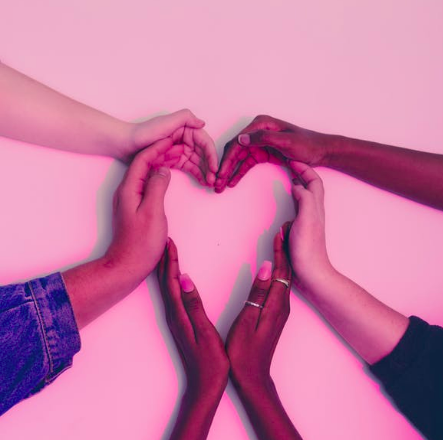
You Can Get Through this Brutal Time
A close friend told me recently that she keeps a list of her “givens” in any dire situation. She tells herself, “It’s a given that I will get through this.” Another is: “All of my givens are knowings, based upon decades of adult awareness.” I hope that you can know that you can and will get through whatever trials or upheavals you are facing now, that you’ve done so in the past, and that radical acceptance will provide you with a sturdier foundation of kindness on your journey.
Accepting our feelings and sensations allows them to pass through us, and we’re a little bit lighter. Our perspective is broader, we can re-find our balance and reset.
In the process, radical compassion comes to the rescue and surrounds us like full moon light, holding us in its soothing arms. When we go through the fruitful darkness we can eventually lounge in the light.
Endnote: I don’t know who first coined the phrase, but Tara Brach titled one of her books “Radical Acceptance” and is well-known for her teachings about this concept. I bow to her.
